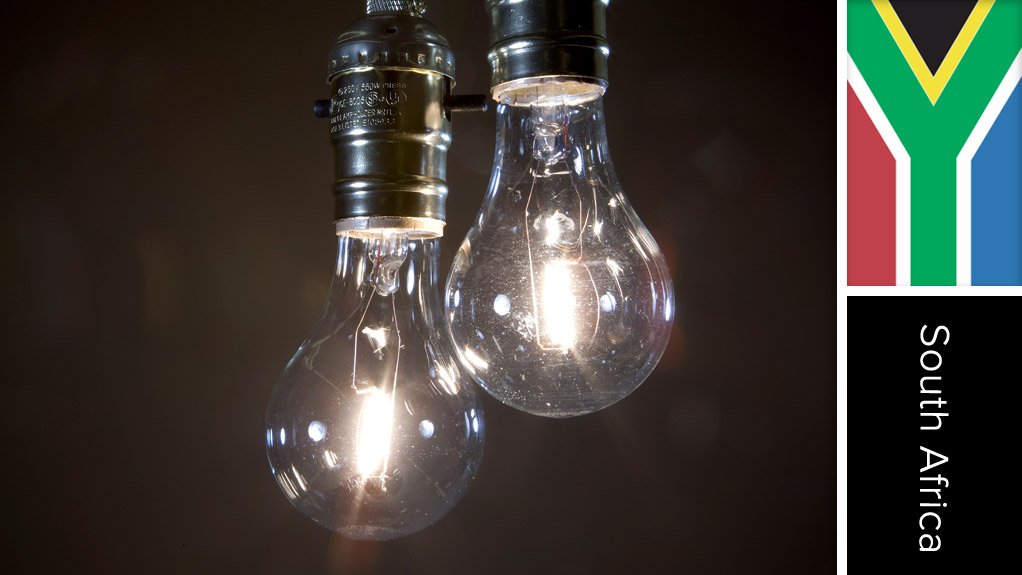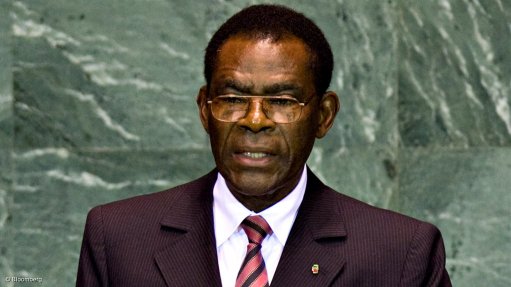Medupi power station project, South Africa
Name of the Project
Medupi power station project.
Location
Medupi is located on an 883 ha site in Lephalale, Limpopo, in South Africa.
Project Owner/s
State-owned power utility Eskom.
Project Description
Medupi will be the fourth-largest coal-fired power plant and the largest dry-cooled power station in the world. The power station will comprise six units with an installed capacity of 4 764 MW.
The planned operational life of the station is 50 years.
The power station will use high-tech supercritical boilers, which will operate at higher temperatures and pressures, compared with that of older boilers, thereby providing greater efficiency. Supercritical technology will result in more efficient use of natural resources, such as water and coal, and will have improved environmental performance and footprint.
It is the first baseload coal-fired power station to be built in South Africa in more than 20 years and its delivery on schedule is viewed as critical.
The project is somewhat unique because Medupi is being built in reverse order – traditionally Eskom has always started building Unit 1 and ended with Unit 6. This new approach is the result of the rock agglomeration on the southern side of the site, which was excavated and reused for engineering fill on the northern side.
The project forms part of the utility’s integrated strategic electricity plan and is designed to be flue-gas desulphurisation ready.
Potential Job Creation
About 18 000 construction contractor employees and 2 000 supporting staff were employed at the peak of construction.
Capital Expenditure
In July 2016, Eskom officially updated its cost-to-completion estimates for Medupi. The State-owned utility reported that Medupi was now expected to cost R145-billion, rather than the earlier revised estimate of R105-billion.
The cumulative cost incurred on the project for the year ended March 31, 2019, was not available at the time of going to print.
Planned Start /End Date
Construction activities started in May 2007.
The first unit, Unit 6, was first synchronised to the grid in the first quarter, beginning in March 2015. On August 23, 2015, Unit 6 of Medupi became commercially operational.
Unit 5 was successfully synchronised to the national grid on September 8, 2016, ahead of schedule, and reached full load on December 17, 2016. After completing performance, reliability and compliance tests, the unit attained commercial operation on April 3, 2017, also ahead of schedule.
Unit 4 was synchronised in May 31, 2017, and achieved commercial operation status on November 28, 2017, ahead of the scheduled timeline of July 2018.
Unit 3 reached first synchronisation in April 2018, and attained full load in May 16, 2018. The second last unit, Unit 2 was first synchronised to the grid in October 07, 2018 achieved full load in November 12, 2018.
The completion of the entire six-unit Medupi project has been revised to 2020/21 financial year.
Latest Developments
Eskom has offered a sobering update on the difficulties it is having at its Medupi project, which is not only years behind schedule and significantly over budget but also beset with technical defects that are resulting in a serious underperformance of the three units that have entered into commercial operation.
Officially, Medupi is expected to cost R145-billion to build. The project is two-and-a-half times more expensive than what was initially budgeted and is well behind schedule.
In a presentation delivered during the National Energy Regulator of South Africa (Nersa) public hearing on February 1, technology GM Dr Titus Mathe said the three Medupi units currently in commercial operation had, for the financial year to date, experienced a total of 66 unit trips from 20 during the 2018 financial year, which runs to March 31.
He also revealed that the average energy availability factor (EAF) for the Medupi units was below 70% between April and December last year, with Unit 6, which was the first unit to enter into commercial operation in 2015, having been on planned outage for three months from the start of September to the end of November.
The immediate target is to return to an EAF of 70%, which is well below the 92% ‘use requirement specification’ target set for the units.
Earlier this year Eskom indicated that the resumption of load-shedding in late 2018 was partly the result of the underperformance of those Medupi units that had been brought into commercial operation.
While Eskom initially described the poor performance of the units as “teething problems”, Public Enterprises Minister Pravin Gordhan indicated that they could be more fundamental, particularly in relation to the performance of the boilers, the grinding mills and the fabric filters.
An issue investigation was instituted in 2018 to understand the problems.
Mathe has confirmed that major design and technical problems have been discovered, most of which relate to the boilers. Some of the technical issues identified include:
the boiler spray systems being unable to cope, owing to a design that has resulted in higher-than-expected temperatures at the reheater.
excessive wearing of fabric filter plant bags, which is resulting in ash blockages, trips, load losses and emissions-related losses.
the milling plants at Medupi are failing to meet technical requirements, which has halved the time between servicing intervals, negatively affected coal quality and has resulted in partial load losses.
the gas air heater performance and fouling is not meeting technical requirements.
problems with the dust handling plant, which is leading to high ash accumulation, leaks and more frequent maintenance, which is resulting in a lack of spare parts.
hardware failures on the distributed control system at two Medupi units is leading to trips.
High vibrations on the generator auxiliary cooling loop.
Eskom has established a specialist team to develop solutions to rectify major defects and work streams have been established with contractors to jointly evaluate solutions.
Mathe has insisted that Eskom “knows exactly” what the challenges are and that detailed plans are in place to address the unit trips.
He has said that Eskom expects to have technical positions for all the defects within the coming six months. It will then enter into commercial discussions with contractors regarding liability for the defects and on how the repairs will be implemented.
He has warned that some of the repairs will require the units to be on extended outage, which means that the defects will probably be repaired in phases from about 2021 onwards.
The timetable for the remaining Medupi units has been slightly extended. The final completion date for the last Medupi unit has been shifted to November 30, 2019, from May 31, 2019.
Key Contracts and Suppliers
Principal Contracts:
Parsons Brinckerhoff (execution partner); Roshcon (enabling civils); Rula Bulk Materials Handling (coal overland conveyor and ash dump conveyor); Mitsubishi Hitachi Power Systems Africa, or MHMPSA (boiler); Alstom S&E Africa (turbine); LP Services consortium (low-pressure services); Alula Water (water treatment plant); Karrena-Concor joint venture, or JV (chimneys and silos); MPS JV (main civils); Actom (electrical power installation and medium-voltage switchgear); General Electric (low-voltage switchgear system); Siemens (auxiliary transformers and generator transformers); Standby Systems (uninterruptible power supply); Alstom C&I (control and instrumentation); Honeywell Automation & Control Solutions South Africa (fire detection and access control); T-Systems (information technology (IT) and IT infrastructure); Siemens ACI Open Consortium (laboratory and analysers); Civcon/G4 JV (miscellaneous infrastructure and reservoirs); Basil Read (buildings, ash dump infrastructure, clarifiers and coal stock yard extension); NCI (diesel generators); ThyssenKrupp Materials Handling (coal stockyard equipment); Clyde Bergemann Africa (dust handling and conditioning systems); ELB Engineering Services (terrace coal and ash); Aveng Grinaker-LTA (buildings phases 1 and 3); Nugen Technologies (Pty) Ltd (nitrogen); Stefanutti Stocks/Mathomamayo JV (raw water pumpstation and substation) and Exxaro (coal supply).
On Budget and on Time?
The project has been affected by technical and labour difficulties. However, measures have been put in place to accelerate progress on the project. This has been evident through the latest achievements of the project milestones as per the project plan.
Contact Details for Project Information
Eskom media desk, email mediadesk@eskom.co.za.
Comments
Press Office
Announcements
What's On
Subscribe to improve your user experience...
Option 1 (equivalent of R125 a month):
Receive a weekly copy of Creamer Media's Engineering News & Mining Weekly magazine
(print copy for those in South Africa and e-magazine for those outside of South Africa)
Receive daily email newsletters
Access to full search results
Access archive of magazine back copies
Access to Projects in Progress
Access to ONE Research Report of your choice in PDF format
Option 2 (equivalent of R375 a month):
All benefits from Option 1
PLUS
Access to Creamer Media's Research Channel Africa for ALL Research Reports, in PDF format, on various industrial and mining sectors
including Electricity; Water; Energy Transition; Hydrogen; Roads, Rail and Ports; Coal; Gold; Platinum; Battery Metals; etc.
Already a subscriber?
Forgotten your password?
Receive weekly copy of Creamer Media's Engineering News & Mining Weekly magazine (print copy for those in South Africa and e-magazine for those outside of South Africa)
➕
Recieve daily email newsletters
➕
Access to full search results
➕
Access archive of magazine back copies
➕
Access to Projects in Progress
➕
Access to ONE Research Report of your choice in PDF format
RESEARCH CHANNEL AFRICA
R4500 (equivalent of R375 a month)
SUBSCRIBEAll benefits from Option 1
➕
Access to Creamer Media's Research Channel Africa for ALL Research Reports on various industrial and mining sectors, in PDF format, including on:
Electricity
➕
Water
➕
Energy Transition
➕
Hydrogen
➕
Roads, Rail and Ports
➕
Coal
➕
Gold
➕
Platinum
➕
Battery Metals
➕
etc.
Receive all benefits from Option 1 or Option 2 delivered to numerous people at your company
➕
Multiple User names and Passwords for simultaneous log-ins
➕
Intranet integration access to all in your organisation





















